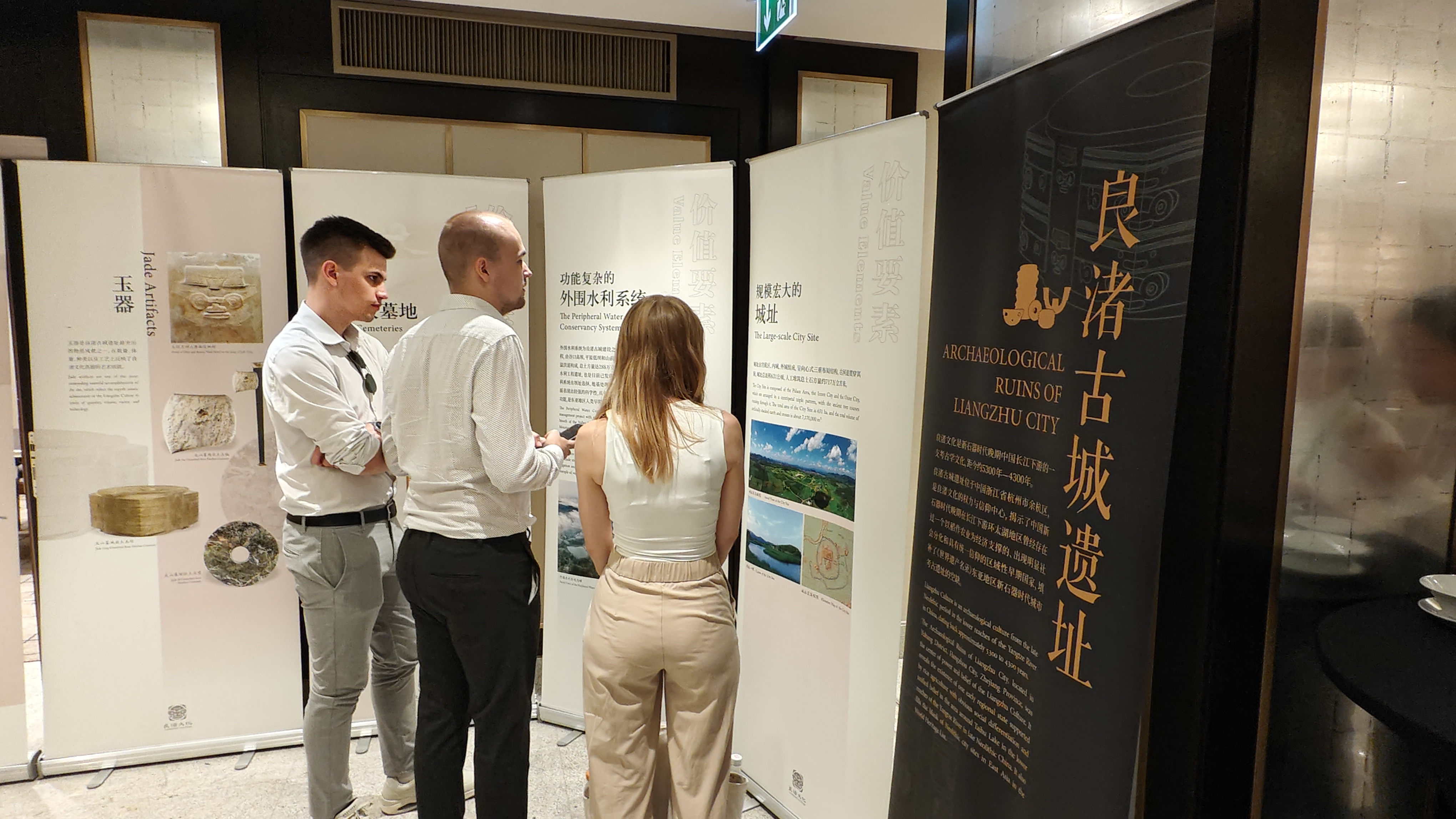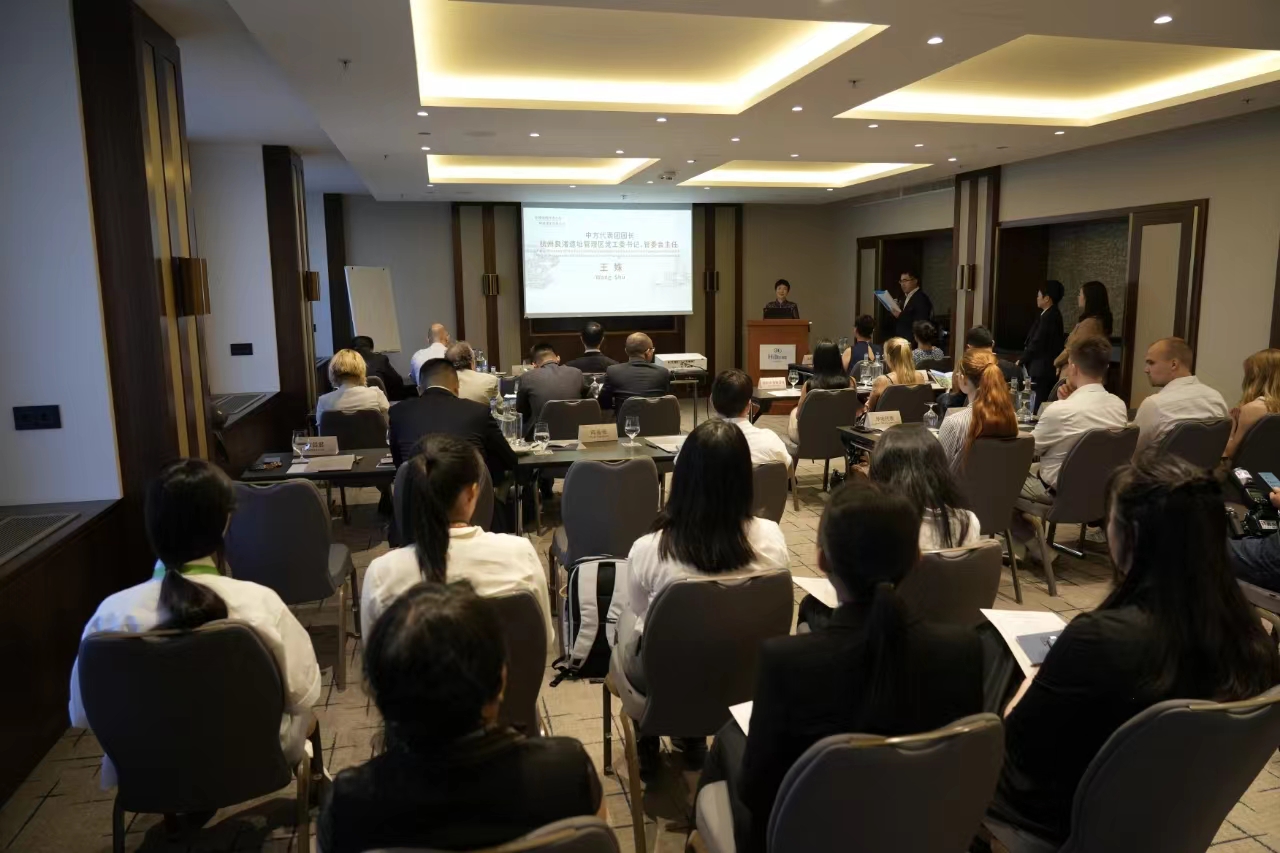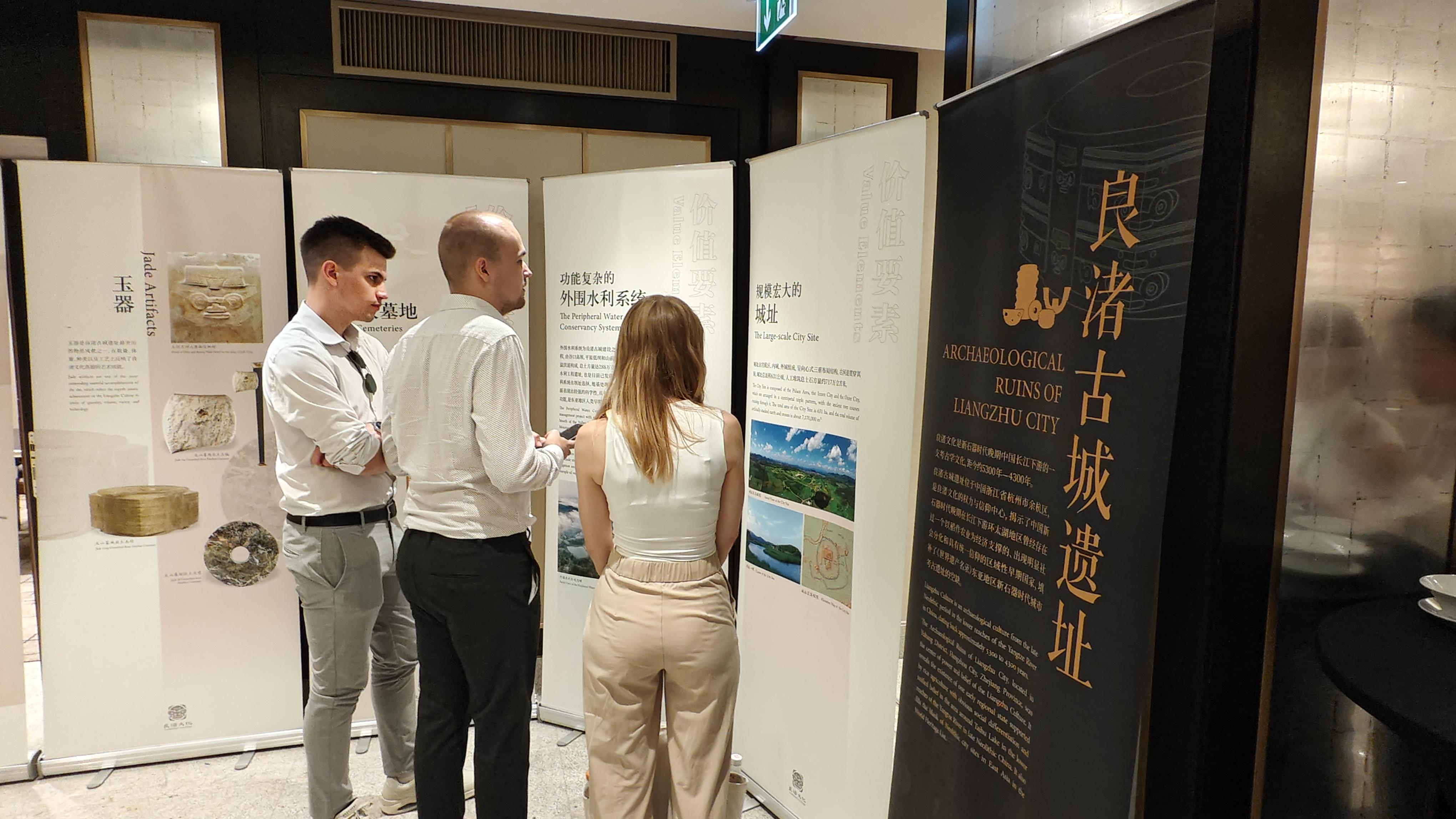
Photo shows a thematic exhibition on the Archaeological Ruins of Liangzhu City.
BEIJING, June 21 (Xinhua) -- The China-Hungary Civilization Dialogue Salon and Liangzhu Culture Promotion Conference took place in Budapest, capital of Hungary on June 18.
The event has drawn over 50 participants from various sectors of the two countries, including relevant experts who delivered speeches and engaged in dialogue on the preservation, research, and inheritance of cultural heritage.
During the event, Sun Jie, counselor of the culture and education section of the Chinese Embassy in Hungary, expressed his hope for the people of both countries to better learn about each other's cultures through platforms like this conference, enhancing mutual understanding and friendship.

Photo shows Wang Shu, secretary of the Party Working Committee and director of the Management Committee of the Liangzhu Site Management Zone, delivers a speech during the event.
The Management Committee of the Liangzhu Site Management Zone in Hangzhou has been working on heritage protection, academic research, and cultural exchanges over the years, said Wang Shu, secretary of the Party Working Committee and director of the Management Committee of the Liangzhu Site Management Zone, adding that the Liangzhu culture has gradually come into the sight of more people at home and abroad.
Ma Dongfeng, executive director of the Liangzhu Museum, gave a detailed introduction to the profound historical heritage and cultural value of the Liangzhu culture. Meanwhile, Steven Back, the representative of the Hungarian National Museum in China, briefed the audience on the outstanding features of Hungary's historical and cultural heritage. Participants also shared their views on how to deepen the exchanges and mutual learning between the Chinese and Hungarian civilizations.
The Archaeological Ruins of Liangzhu City, which is located in Yuhang District of Hangzhou, east China's Zhejiang Province, used to be the political and religious center of an early regional state in the Lower Yangtze River around the Taihu Basin. The heritage components include the city site, peripheral hydraulic engineering, and a cemetery, all of which date back to a period from 3300 BC to 2300 BC. The site was inscribed on the World Heritage List at the 43rd session of the World Heritage Committee on July 6, 2019.
In addition, a thematic exhibition on the Archaeological Ruins of Liangzhu City was hosted during the conference, showcasing the value of the site via images and texts, and attracting hundreds of local visitors. (Edited by Yang Linlin with Xinhua Silk Road, linlinyanglyn@163.com)




 A single purchase
A single purchase









